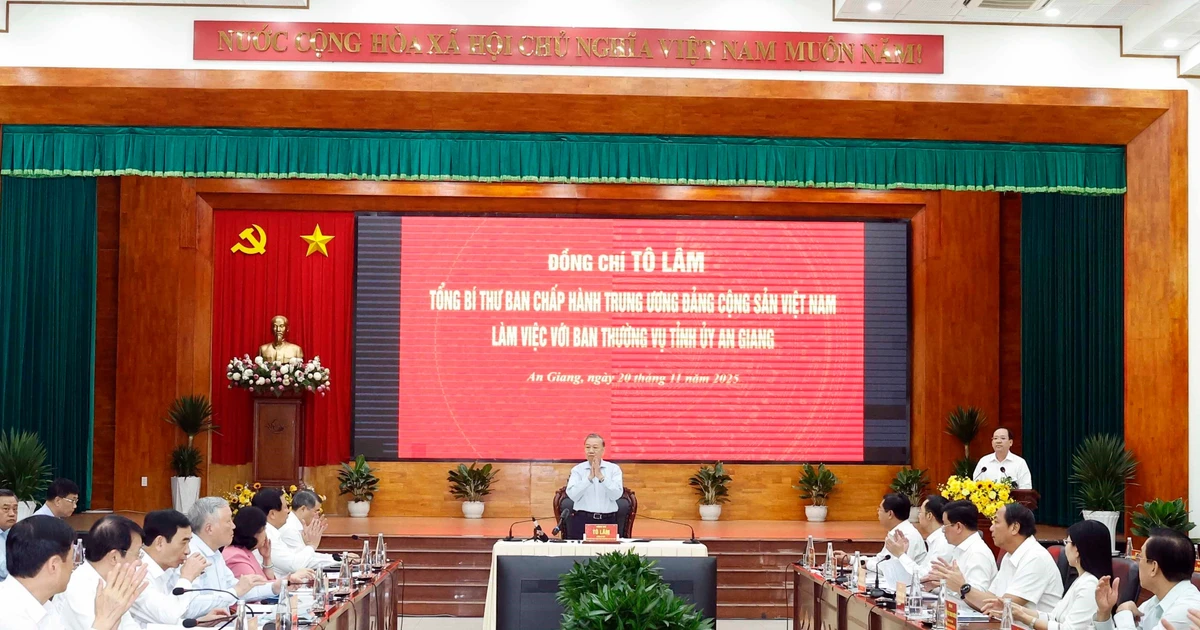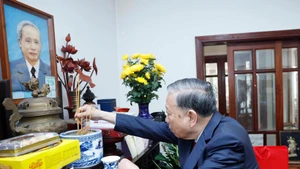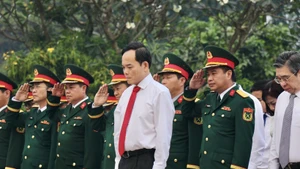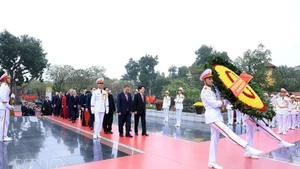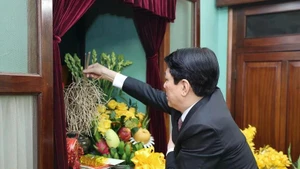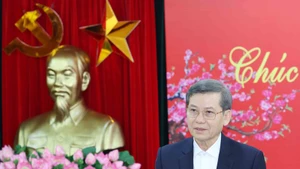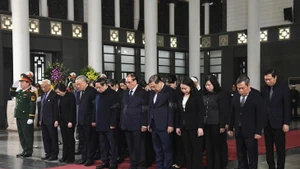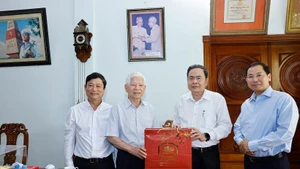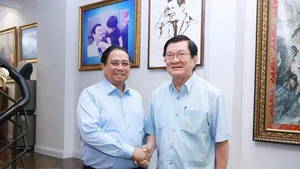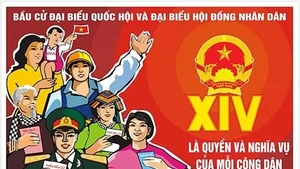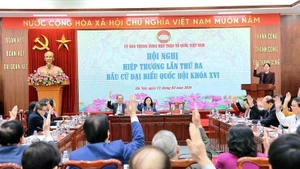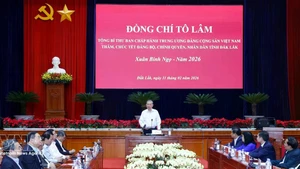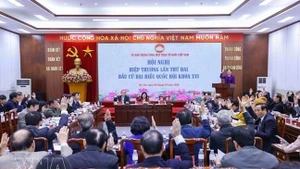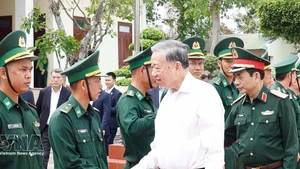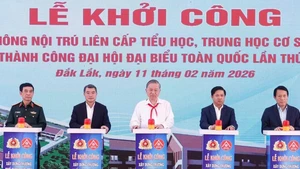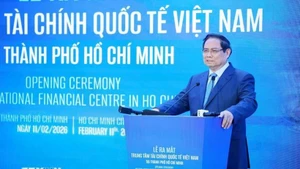He made the remarks during a working session with the Standing Board of the An Giang Party Committee in the Phu Quoc special zone on November 20.
In the first 10 months of 2025, An Giang’s economy expanded by 7.85%, the highest rate in the region. Agriculture continued to play a pivotal role, with rice output estimated at more than 7.8 million tonnes. Industry and construction posted double-digit growth, while its tourism sector attracted more than 21 million visitors, up 21.7% year-on-year. The province also reported progress in social welfare, poverty reduction and rural development, while maintaining stable national defence, security and public order.
An Giang aims to develop Phu Quoc into an international centre for ecology, leisure and creativity by 2030 and is stepping up preparations to host the 2027 APEC Economic Leaders’ Week. The provincial People’s Committee has so far approved the master plan for APEC-related activities and adjusted the general planning for the Phu Quoc special zone.
The Party chief noted that the government recognises An Giang’s proactive steps following the designation of the Phu Quoc special zone. The province is drafting the governance model for the Phu Quoc–Kien Hai–Tho Chau unit, a major task requiring close alignment with the Party Central Committee's guidelines. He said institutional and governance mechanisms must be refined to ensure Phu Quoc becomes a new growth driver, with strong commitments to forest and marine protection, environmental standards and clean energy.
While acknowledging recent gains, the Party leader urged the province to fix persistent challenges and adopt more decisive, breakthrough solutions to unlock new development space and reinforce its role as a strategic upstream and coastal-island province.
To achieve the target set by the provincial Party Congress for the 2025-2030 term - transforming An Giang into an advanced province and a national marine economic hub, the province must mobilise all available resources, particularly from the private sector and international partners, he said.
He called for accelerated economic restructuring and the pursuit of a modern growth model, aiming for double-digit expansion. The province should increase the share of industry-construction and services; develop high-tech, large-scale agriculture linked to value chains; harness its coastal advantages to build a strong marine economy; and expand offshore aquaculture integrated with tourism. Phu Quoc, he said, must serve as a breakthrough growth engine.
He emphasised the need to speed up key infrastructure projects aligned with national and regional planning, including transport corridors linking upstream areas with coastal and island zones, major cities, Cambodia and international shipping routes. Priority should be given to seaports, fishing ports, Phu Quoc International Airport and logistics centres, he added.
The Party chief also urged advances in science and technology, innovation, digital transformation and human resource development. He encouraged broader international cooperation and the adoption of technologies such as AI, biotechnology, big data and clean energy to boost productivity and competitiveness.
He further underscored the importance of cultural and human development, calling for the preservation of the diverse heritage of the Kinh, Khmer, Cham and Hoa communities, improved cultural access, and modernised education and health care, including the development of smart, digital schools.
On preparations for APEC 2027, he requested close coordination with central and local authorities, faster progress on infrastructure, stronger public communication efforts, and enhanced trade promotion and cultural showcasing, so as to contribute to making the event successful.
